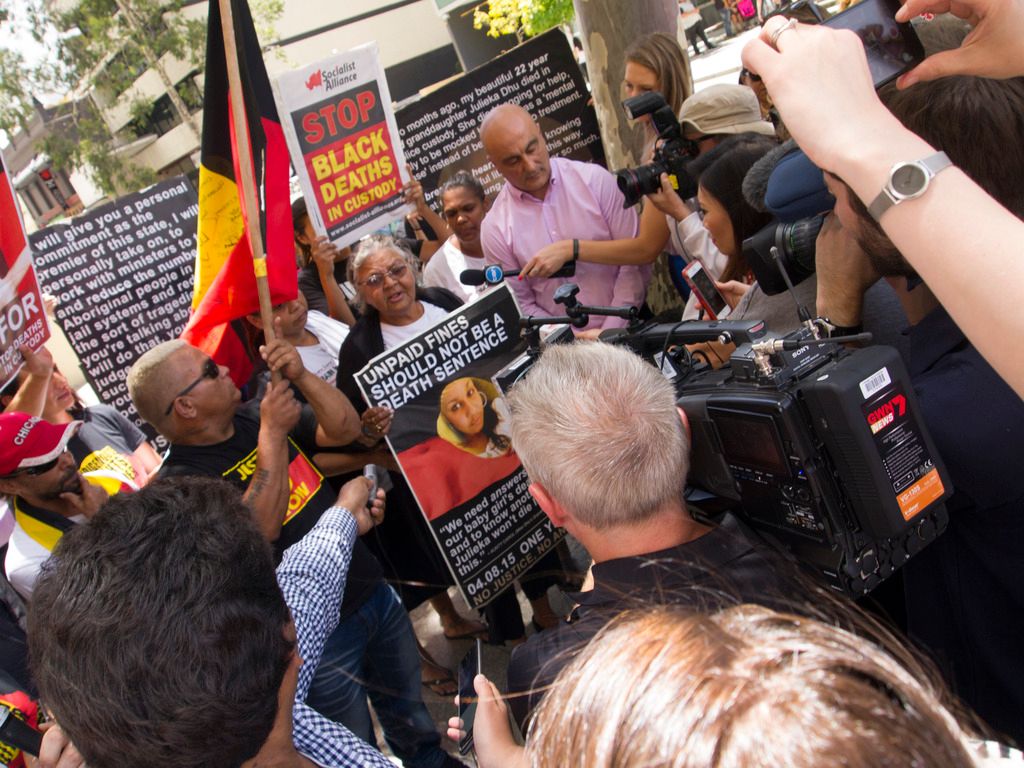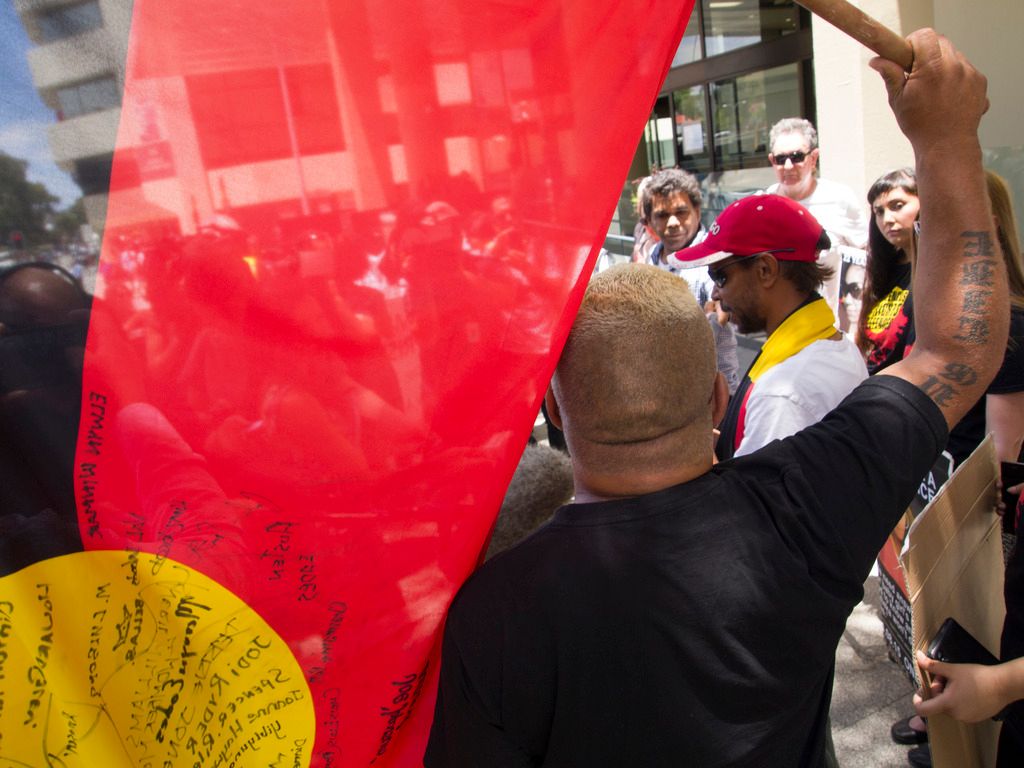This is an Ideas piece by independent journalist Royce Kurmelovs.
I missed my flight. That’s how it started. I had booked a red-eye to save on money and I missed it by five minutes. It cost $150 to get the next one. That hurt.
I’d been planning the trip for over a month. There was going to be a coronial inquest on in Court 51 on floor five of the Central Law Courts, deep in the heart of Perth at 10am Monday morning and I was going to be there.

A friend had told me about the story. He had been wanted to do the job himself but was going to be working in Malaysia, so he hooked me up with a paralegal on the case and a member of the dead woman’s family. I knew where it was going to be, I knew when and I knew the background. I also knew it was going to mean a long two weeks in Perth, one of the most isolated cities on the planet.
About a month before I had negotiated commissions from three separate organisations. Two said yes, the other said maybe. Even then nothing was set in stone and there was every chance any one could fall through. If it did, I wouldn’t be making my money back, which would suck because being a freelance reporter is how I pay rent.
This is a little insight into a life of doing words for money: do it long enough, chances are you’ll end up talking and thinking like a hacky noir detective from the 50’s too. Freelance reporters are strays. In the scheme of things, we’re outsiders flying no flag. Some are good, some are bad, mostly we are just looking to get paid and keep going.
No one should work like this unless they have to, and if that’s you, go all in. I only started because no one would hire me and I couldn’t afford to intern for free. I had no other marketable skills, so I did it anyway. That’s before I understood working as an independent meant no holidays or superannuation or overtime. There is no guarantee of even getting paid and there is always a chance you’ll get screwed on something by someone. Whatever happens, you still have rent to pay and an internet connection to maintain.
Then there’s working from home. It sounds great until you do it. You’d be surprised how quickly you start dreaming of having somewhere to go outside the four-by-four metre area of your office-slash-living room. On top of that, you are responsible for admin and tax and recording keeping and production and research and then there are times when you have no work. It is a hard thing to sit idle while you scroll social media and watch your reporter friends and colleagues do battle without you.

That said, once you learn the business, build a few good relationships with good editors and learn how to sell, things do get easier. If you do it long enough, you’ll also learn some interesting things. You’ll be able to choose which stories you work on and who for. If they’re big enough, you might be able to make a name for yourself, but even if you don’t, your job will literally be to read everything and talk to interesting people. You’re a hired geek and it’s the best job in the world, so long as you earn.
The weekend I flew into Perth I knew covering the inquest alone wasn’t enough to make my money back, so I had to look around for other stories and it just so happened that Reclaim Australia had been holding nation-wide protests. Seemed as good a story as any. I sent an email to an editor and got a commission.
I turned up a few hours before the whole thing started and the moment I pulled my camera, I had a guy telling me to put it away, not that that was going to stop me. He went to take a photo of me and I flashed my media ID. He checked it out and then brought over an organiser who also checked it, thoroughly. They wanted to know the organisation I worked for, but had never heard it, so I found it on my phone. “We’ll be watching,” they said as I was turned loose in their camp.

That’s how the day started. From there it was a long, hot grind in the Perth sun. Volunteer security kept asking me who the hell I was and a man in a blue shirt abused me as the rally broke up while I had been talking to a young Muslim woman. That night I wrote the story. A day later I spun out another. Not bad for a couple of day’s work.
The rest of the week was a blur of 5.30 am starts, take away coffees and long stretches of court time and watching how the process of slowly dissecting the last three days of a dead woman crushed her family. That, in a nutshell, is the beauty of court reporting: the details come out in a neat, orderly way like that.
And I had it easy. I had parachuted in at a critical moment to tell the world how terrible it all was with a handful of features. Guardian reporter Calla Wahlquist was filing twice daily and again on the weekend while The Australians’ WA Bureau Chief Paige Taylor had been investigating almost from the day the woman had died. Both should be paid more.
Now it’s the weekend and the inquiry resumes next week. Maybe I’ll get another story out of it. Maybe not. Who knows? Point is that in a weeks’ time I will have written a bunch of words about how terrible it all is and then I’ll fly home. I’ll hug my partner and go back to my office. There I’ll open my laptop, see what other terrible things are going on in this country, and start again.

This is an Ideas piece, part of a series where writers discuss ideas around the craft of writing. To read more like this, click here:
All images courtesy of Royce Kurmelovs.
Royce Kurmelovs
Royce Kurmelovs is an independent journalist based in Adelaide, South Australia. His work has been published by the BBC, Al Jazeera English, The Guardian, Vice and others.

